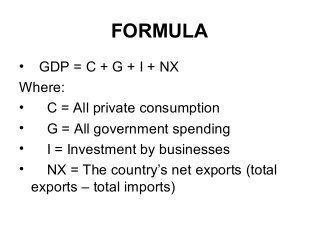
Dòng tiền đầu tư nước ngoài tiếp tục đổ vào, BIDV vừa chốt xong deal hơn 20 ngàn tỷ đồng với Hana, các doanh nghiệp tư nhân (Masan, Vincom, VPBank,…) liên tục huy động được tiền nước ngoài cả equity lẫn bond, các nhà đầu tư Hong Kong, Singapore mua lại các dự án bất động sản. Ngoài ra, dòng vốn đầu tư FDI chuyển dịch từ Trung Quốc sang Việt Nam đang làm nóng giá thuê các khu công nghiệp,… Tiền USD vào lớn, đồng nghĩa lượng cung VND ra lớn. Số liệu thị trường mở cũng cho thấy thị trường bơm hút khá nhịp nhàng, xu hướng tích lũy theo thời gian vẫn là bơm ròng. Lãi suất được duy trì ở nền thấp, lợi suất tín phiếu liên tục suy giảm, kỳ hạn 2 năm giảm mạnh từ 3.5% cuối tháng 6 xuống 3% hiện nay.
TẤT CẢ NHỮNG DẤU HIỆU ĐÓ CHO THẤY SBV ĐANG THEO ĐUỔI CHÍNH SÁCH TIỀN TỆ NỚI LỎNG.
Về khía cạnh chính sách tài khóa, nút thắt cổ chai đầu tư công vẫn còn đó, lượng tiền giải ngân đầu tư công đang khá bế tắc, tiền kho bạc nhà nước ùn ứ, đem gửi ngân hàng hoặc mua trái phiếu khá đáng tiếc. Tuy gần đây tình hình có cải thiện, một số tuyến đường được phê duyệt trước đó, vẫn tiến hành, nhưng nhìn chung còn khá nhỏ so với những dự án Hạ tầng, sân bay chưa được giải ngân. Hiện Quốc Hội đang thảo luận để gút lại Luật Đầu Tư Công sửa đổi, có một số dấu hiệu cho thấy tình hình cải thiện. KỲ VỌNG NÚT THẮT NÀY ĐƯỢC THÁO GỠ TRONG 2020.
Ở một khía cạnh khác, Quốc Hội bất ngờ đồng ý đề xuất giảm thuế thu nhập doanh nghiệp còn 15%, 17% so với 20% hiện nay. Đây là một tín hiệu rất đáng mừng và hỗ trợ sát sườn đối với đời sống doanh nghiệp. Theo tính toán, ngân sách nhà nước sẽ giảm hơn 9000 tỷ/năm cho chính sách này, điều đó đồng nghĩa với hơn 9000 tỷ đồng trở thành vốn tái đầu tư hoặc chi trả cho cổ đông. Hay nói cách khác, đây là gói kích cầu 9000 tỷ/năm.
TẤT CẢ NHỮNG DẤU HIỆU ĐÓ CHO THẤY BỘ TÀI CHÍNH ĐANG THEO ĐUỔI CHÍNH SÁCH TÀI KHÓA NỚI LỎNG.
Nhìn lại công thức tính GDP. Chính sách tiền tệ và tài khóa nởi lỏng sẽ giúp cho tiêu dùng tăng lên (tức C tăng lên), giúp cho đầu tư tăng lên (tức I tăng lên), nếu nút thắt đầu tư công được tháo thì chi tiêu chính phủ sẽ tăng mạnh (tức G tăng lên). Biến số còn lại là cán cân ngoại thương xuất nhập khẩu, hiệu tại biến số này phụ thuộc nhiều vào FDI, tuy vậy phân tích dữ liệu quá khứ, cho thấy cán cân này có xu hướng thặng dư (tức NX dương).
TẤT CẢ NHỮNG ĐIỀU ĐÓ LÝ GIẢI TẠI SAO VIỆT NAM GẦN ĐÂY NỔI LÊN LÀ LỰA CHỌN ĐẦU TƯ HẤP DẪN TRONG MẮT NHÀ ĐẦU TƯ NƯỚC NGOÀI.
Welcome all of you guys to Vietnam
FINANDLIFE